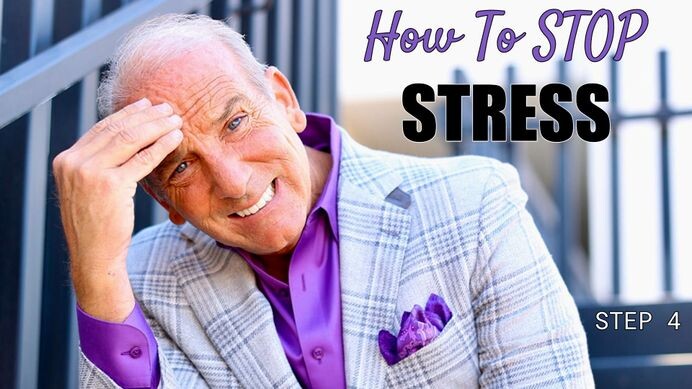In Part IV, we will cover the most prevalent fear of all, the fear of powerlessness. I will explain the three signs of experiencing a period of powerlessness and the solutions to get through them.
So, what is fear powerlessness, and where does it come from? Well, it comes from attachment. You see, we are the only species on this planet where we must be physically and emotionally attached to another human being, or we will die; our survival depends on it. There are many moments in childhood where our sense of self, what I call our authenticity, is challenged. In other words, our parents imparted their views on us. For instance, so many of us heard things like, “If you don’t stop crying, I will give you something to really cry about!” Or, “Children are to be seen and not heard.” Comments like these make it clear we cannot express our authentic selves. But, of course, we could not prevent these events, and that’s where we learned the fear of powerlessness for the first time.
What are the three signs that we are experiencing the fear of powerlessness?
The first sign is that we focus on what we can’t control and not what we can control. For example, we are having money trouble, and we spend all day long worrying, “Oh my Gosh, I’m going to go broke and be on the street!” Instead of focusing on a solution. We are stuck reliving the problem, just like when we were a child, believing we have no recourse to defend ourselves. As a result, we find ourselves stuck in the powerless, childlike state, the victim-side of the problem.
The second sign is that we’re giving ourselves away, and going against our morals, values, needs, and wants negotiable’s, and non-negotiables. I will share a story about a client of mine to show how this works. He’s a mortgage guy and gives out gifts to his clients. This week, he came in with some gift ideas; he found someone who sells these nice designer knives. He thought that might be a neat gift. Well, the salesperson was a woman who kept pressuring him to buy. Finally, he started getting afraid and started to back off. I already know his story. His mother controlled every feeling, every action he ever took.
As he tells the story, he is not aware that the pushy saleswoman is triggering memories of his mother, which is why he wants to back off. So he tells her, “I need to talk this over with my wife.” He then goes to his wife and asks her, “Hey, I have an idea about these designer knives. What do you think?” She immediately says, “No.” I asked him, “So, what did you do?” He says, “Oh, I didn’t do it.” I asked him, “Did you see what just happened?“.
He was just in a position with two women, and he gave himself away. His morals and values were in line with the knives being a great gift. It was his need and want to share that gift with his clients. It was negotiable and the right thing to do for him. Instead of honoring himself, he acted just like he had as a child and repeated his fear of powerlessness. He gave himself away to please the woman in his life (now his wife) and never realized he was acting just like he did as a child.
The final way powerlessness expresses itself is the inability to say no. Most people can’t say no to others because they feel it’s rude, think it’s mean, or selfish. This belief originated in childhood because, in essence, we could never say no to our parents. This leaves us feeling that we are selfish or bad if we think of ourselves or that all we’re ever supposed to do are things for other people.
What is the solution?
The first thing to do is to make two lists. On one, we list all of the people, places, and things we can’t control. We can’t control people’s actions, choices, or feelings, nor can we control how the world works. But I can control my thoughts, my feelings, and my actions. I am responsible for everything I do, and those items go on the second list. We do this so that when we are stuck in the self victimizing powerless state of thinking.
“Oh my Gosh! I’m going to go broke.” Next, we can switch to questions that empower us and focus on what we can control. Questions like, “how can I make money? What are my options? What can I control?” I can reach out to previous clients, check-in, and see how they’re doing in my situation. They might respond, “Oh my Gosh! My husband and I just got in a fight. Can we come and see you?” I have just generated a solution and empowered myself by focusing on what I can control and not what I can’t control.
The second solution is to define my morals, values, needs, wants, negotiables, and non-negotiables. This works because we go through every area of our life, friendships, relationships, career, hobbies, spirituality, and every aspect of our life. Such as, do you believe in monogamy? Do you think you’re supposed to live together before you get married? Is it okay to have sex before marriage or wait until marriage? Do you want to have sex once a week, once a year, once a day? Sadly, most people don’t know their morals, values, needs, and wants and just relive what their parents told them to believe. No wonder so many people feel powerless.
The second solution is learning the criteria for when to say no. The key is a shift in what it means to be kind and loving. Most relationships, whether they’re business or personal, end with both sides lamenting, “I did this for them, and they never gave me that.” In other words, both feel they were the giving one, and it wasn’t returned. So what does that tell you? All of those things we’re doing are in the hopes that we get something in return. To put it bluntly, that means we have all been taught to do things for others to manipulate, getting something in return. That’s not doing something for someone else out of kindness or love because unless it is returned, we’re going to make them pay for it. That is how we make ourselves powerless.
Therefore, before we ever say yes to anyone for anything, we need to ask ourselves these three questions:
1.) Am I going to keep score?
2.) Am I going to throw it in their face?
3.) Will this ever lead to resentment?
If we think any of those things will happen, we need to say no! Otherwise, we’re going to throw it back in their face, and we’ll realize we gave our power away.
If you have a hard time saying the word no, I will share a magic phrase that works every time. Instead of saying no, you can just say, “That doesn’t work for me.” It is magic because they can’t argue with that. Let me show you. They might say things like, “What do you mean it doesn’t work for?” You just say, “Well, it just doesn’t work for me.” They may ask, “So what part of it doesn’t work for you?” You can reaffirm, “It just doesn’t work for me.” You don’t have to explain yourself because you’re no longer a child. We don’t have to defend why we don’t want to do something. It is enough that it just doesn’t work for us. It gives us complete ownership and prevents us from giving ourselves away. Taking responsibility is empowering. So, there are your solutions to the fear of powerlessness.
I will combine these concepts and tie them up with a bow in Part 5. So, don’t miss the final segment of this 5 Part Series on how to stop the stress!
Are you looking for more solutions? Pick the one that suits your needs best!
1- My Book, Your Journey To Success
2- My Complete Emotional Authenticity Method
3- My Perfectly Imperfect Private Group
4- My Private Coaching
Learn more here:




